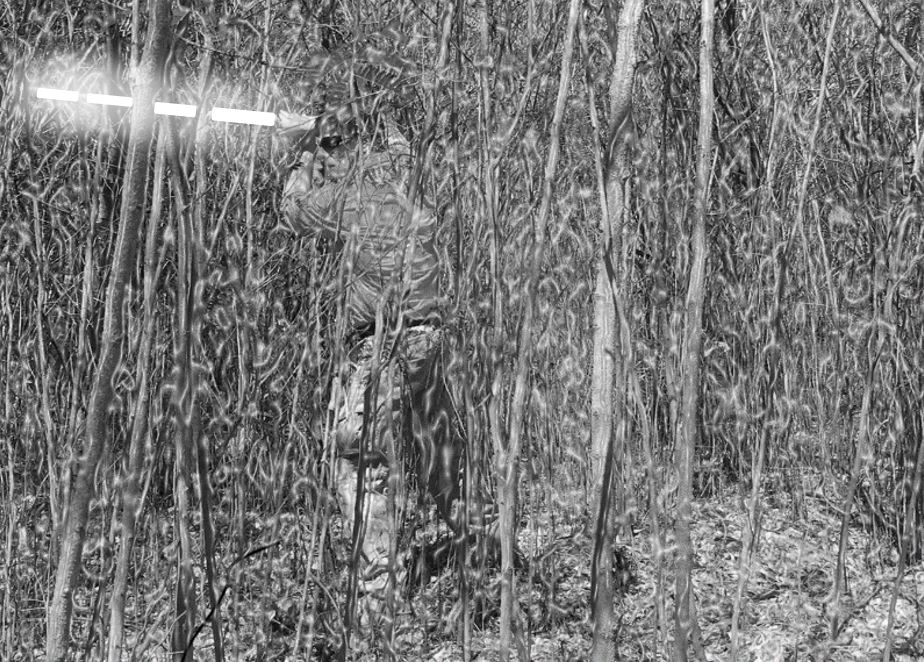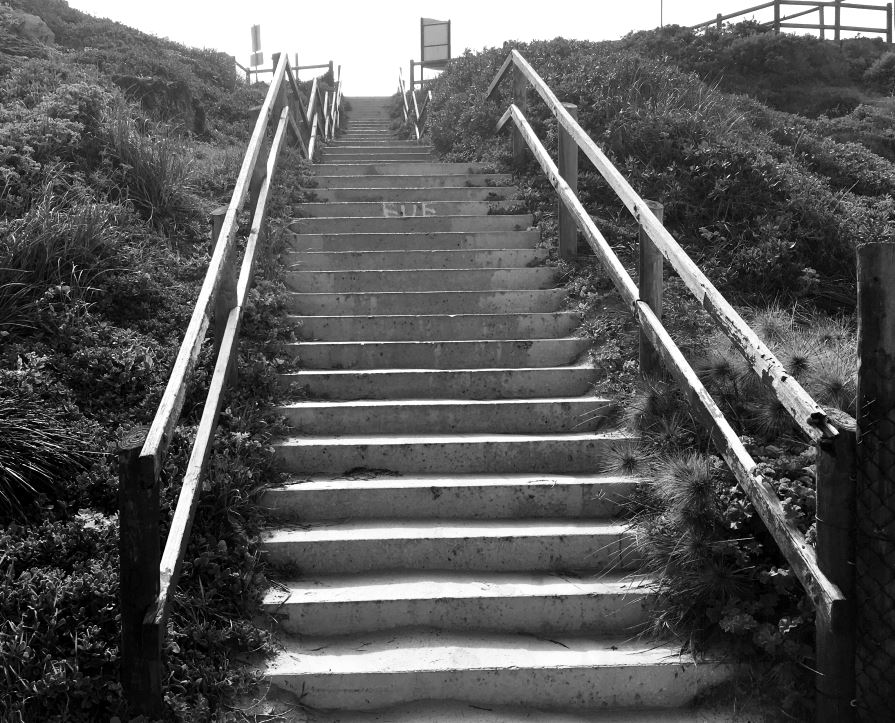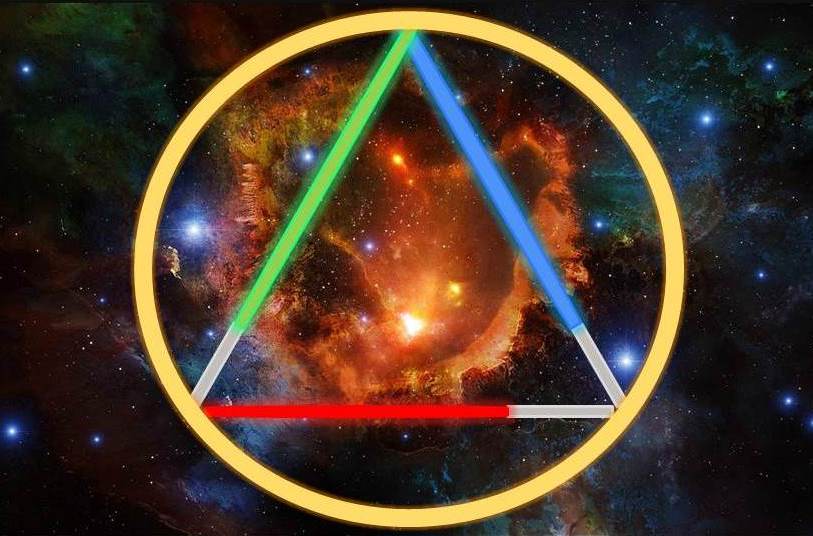
This New Year I decided to review how far I have come on the Jedi Path and was struck with an inspiration to rewrite the 12 Steps as it may have served the Jedi. In doing so I realized that the 12 Steps can be a azimuth, a sign post that guides us on the Jedi Path leading to realization of the Jedi Code in our lives. Here are the 12 Steps of the Jedi Path to recovery as I see them. I hope this can serve others in their own journey. The 12 Step Jedi.
The 12 Steps
Step 1: Became aware that we suffer and have fallen prey to the insanity of the Dark Side through alcoholism and addiction.
Darth Vader was never completely lost to the Dark Side. No one ever really is. Shards of the past, brief glimpses of who and what he was reminded Darth Vader that deep within him still resided Anakin Skywalker. In the fan film “Shards of the Past” Darth Vader still dreams of his former life and his love. Without that thin reed of love that still shone like a feeble light in the darkness there would never have been final redemption for Anakin.
The first stage of recovery is admission that we have a major problem. As humans we all suffer. The cause of all suffering is grasping attachment. Alcoholism is a form of unbridled attachment and ego run riot. To a sane and healthy person, the alcoholic appears quite insane. Through admission we see it too. Only through admission can we learn to let go of our attachments and start a process of ego deflation. Recovery starts with accepting that there is a problem but there is also still a way out.
Step 2: Came to believe in the Force. We realized that the Light Side is the Jedi Path to redemption and recovery.
Step 2 calls for us to become willing to believe that a Higher Power can restore us to sanity. It is up to each individual to decide their own Higher Power. As Jedi we reject the Dark Side and turn to the Force. Being luminous beings in human form there is still the spark of the divine within us. It can never be completely extinguished. We come from the Force and ultimately return to it as we belong to it. No matter how deep we sunk in depravity or despair we are never gone beyond all hope. The Force is always within reach if we are willing to come back to the Light.
Step 3: Became willing to accept the Jedi Path and surrendered our lives to the Force.
Obi-wan Kenobi asked Luke to trust in the Force, to use it. Yoda also reminded Luke that our lives ultimately belong to the Force. Our lives are granted by the Force in trust. The act of surrender to the Force empowers. All we have to do is surrender ourselves to the Force and put our trust there. We turn over our problems to that Higher Power and stop trying to run the show.
The Force is a life line. We accept the thin reed that is offered and we pull out selves out of the hell we have made for ourselves. The problems that we had are no longer ours, we have turned them over. They now belong to that Higher Power, we call the Force. Liberated of the burden we can walk free at last. On dry ground we have landed on the Jedi Path and only need to take one step after the other in our new life.
Step 4: Willing to confront our inner Dark Side we entered our personal Dark Side Cave without fear or hesitation.
The “Dark Side Cave” on Dagobah in “The Empire” was a metaphor for the unspoken Demons that reside within. Our fears, anxieties, resentments, grief and anger reside within that. The “Cave” hides our secrets and the darker recesses of our psyche. In order to conquer our Dark Side and start healing we need to confront it. As Luke entered the Gnarled Tree and encountered his Dark Side, so must we. Failing to do so allows our fears and failings to persist dragging us down. Our previous self remains hidden only, covered over by a thin veneer. In time it will emerge stronger than ever unless it is exposed and dragged in to the Light. This we do by looking squarely in to the mirror. We bare open our soul. By making a full, searching and honest inventory of all of our wrongs and faults we invite our Dark Side out to play. Nothing is left out. We must be brutal in our self honesty and pull back the curtains to see what we truly were.
Step 5: Emerging from the Dark Side Cave anew we admitting our past wrongs and faults to ourselves, to another and to the Force.
Luke Skywalker confronted his Dark Side in the Cave on Dagobah. Anakin also came face to face with his Dark Side in the “Clone Wars: Ghosts of Mortis”. Yoda was tested by his Dark Side in the “Clone Wars: Destiny”. In all of these confrontations good ultimately prevailed. Each of the Jedi was able to overcome the “darker sides of their nature”. It is unlikely that we will have a psychic battle with our own Dark Side as depicted in Star Wars however we can begin to grapple with it by taking full responsibility for every action we ever committed through confession and disclosure. It is not enough for us to admit it to ourselves and the Force only. We must also admit our past and our faults to another. Someone we can confide and trust in who is willing to listen to our story in a non-judgmental way will allow us to be free of the guilt and shame at last. We can at last become right with the Force and start to bring balance and peace in to our lives.
Step 6: We then became willing to let go of our past wrongs and faults.
The “Dark Side Cave” showed Luke his manifested darkest fears. The Cave acted as a reflection of the mind only. Luke came out of the Cave still ignorant of his legacy and his own attachments. Only our attachments to our faults prevent us from moving forward. We must be willing to let go of them. If we know we have an anger problem we start by deciding “I’m no longer going to be angry”. Where Fear of change is holding us back we decide “I’m not going to be scared anymore”. Our lives have been a dishonest facade so we make the decision to be honest.
The serenity prayer asks that we have the serenity to accept the things we cannot change and the courage to change the things that we can. Understanding the dichotomy of control is important. There are things outside of our control and other things to which we have partial control. These “externals” demand our attention and energy but frustrate us when they fail to conform to our view. What truly matters is what resides within us; our reasoned choice. We can control how we act and what we say. It is within our reasoned choice to “let go” of our past wrongs, our faults and failings as we perceive them.
The decision to do so remains with us. No one can change us only we can decide to change ourselves. As the saying goes “Be the change you want to see”.
Step 7: We finally let go of our past wrongs and faults leaving them behind.
In “The Empire” Luke Skywalker struggles with his identity and purpose. Luke wants to be a Jedi and is impatient, obstinate and angry. There is much he needs to learn. In between the time he is rescued on Cloud City to the opening scenes in “Return of the Jedi” something has changed in Luke. Gone is the reckless and impulsive youth. The boy has become a Jedi.
Step 7 is acting out our new lives. There is no miracle. Change is simply the product of intent and action. If we struggle with change “we fake it till we make it”. Being Jedi is a verb. A Jedi is measured by their actions and the virtues they demonstrate every day. Being sober is not only abstaining from alcohol but exercising principles in our lives. We stop being the person we were and start being the person we want to be. In order to be that person we must let go of the behaviors and thinking that used to define us and start applying principles and virtues in to our lives.
Step 8: We made a list of those we had harmed in the past and became willing to make amends.
Star Wars is replete with examples where the past has caught up with its characters. Darth Maul finally confronted Obi-Wan Kenobi on Tatooine after decades of hunting him down to extract the revenge he demanded. Obi-Wan spent years in hiding until his past caught up with him again in “A New Hope” and he was finally ready to meet his destiny on the Death Star. Darth Vader, a twisted and tortured slave of the Emperor, finally found redemption and reconciled with his son. Luke Skywalker alone on Ahch-To with his painful memories, hiding a dark secret, finally finds the will to meet the evil he has helped create and find his own final redemption. By digging in to our past we not only confront our faults and failings we also find the courage to face those we have harmed so that we may at once set matters right and also find redemption.
Our past lives made a huge impact on others as well as ourselves. If we are honest we have to admit that there are more people who were harmed by our behaviours than we know. We cannot make amends for every wrong ever done but we can try to make things right where we can. In making a list we must once again be honest and thorough. Our list may include those who we have grievances with. By adding them to the list we accept that we have to ignore the fault that others carry, we are only interested in making things right as far as we are concerned. To that extent we must be willing to forgive others and especially ourselves.
Step 9: We made amends to those we had harmed except when to do so would injure them or others. Where we have been harmed by others, we forgive. We also made self amends and forgave ourselves.
Dealing with amends in real life is a little different and may not be as drastic as these events in Star Wars. Sometimes it is not possible to find all those we have harmed. Making amends for past actions known and unknown may also cause greater harm than good. A person we have harmed may no longer be alive. They may not be interested in our amends. Sound judgement is required when deciding to approach someone with amends. The key is to act with sincere intent and reason. Where we have been harmed we must be prepared to forgive and let go of the pain and resentment. In doing so we walk away with a clear conscience. We should not forgot that the person on the top of our amends list is ourselves.
Never forget that the best way to make amends for the past, is not to try to change it. Nothing can change the past. Amends are best served by living our new life with principle and purpose. In doing so we can avoid the need to make amends in the future by living right today.
Step 10: Training daily we sought to always improve ourselves physically, mentally and spiritually. When we made mistakes we admitted them immediately and made amends if possible.
Being Jedi is a process of continuous improvement. We do not compare ourselves to others to make ourselves feel lesser or better. Our goal is only to improve daily to become better versions of ourselves. Training requires a concerted and ongoing process with a goal of progress not perfection. In order to develop physically, mentally and spiritually we must be prepared to apply right effort. A Jedi will seek to train body, heart, mind and soul. The “How” is left to the individual.
On the journey we must accept that mistakes will be made. There is no perfect path and errors provide lessons if we are honest about them. Every mistake should be seen as an opportunity to learn. Expect to stumble but be prepared to quickly rectify and make amends and keep moving forward. Never stop growing.
Step 11: Meditating daily we sought to increase our Knowledge of the Force so that it might lead to realization of Peace, Harmony and Serenity in our lives and in the lives of others.
The Jedi Code is an ideal. Perfect practice is a myth. Achieving enlightenment is not what we are after. The goal is to progress one day at a time, one moment at a time. Through little steps and incremental gains we begin to realize our goals. Through self-betterment we in turn make the world a better place. Daily meditation should be an integral part of Jedi practice. Through meditation we come to greater self-realization and knowledge. The benefits of meditation flow into all aspects of our lives.
Step 12: Having learned to live as a Jedi as a result of these Steps we continued to apply the Jedi Code in all aspects of our lives putting our own life and home in order first. Seeking world betterment through self betterment we continued to walk the Path. On our journey we supported others and helped those who sought our aid where we could.
The focus of our efforts should always be centered on ourselves in the beginning. As we recover we being to extend our focus outward to others. We get our own home in order first and look after those close to us. In time we can extend our focus out further in to the community, nation and world.
Ultimately we are in a better position to help those in need being always mindful that to render aid and provide support can come with intended and unintended consequences. Where help is sought we do only what we are capable of doing and aim to help others to help themselves.
As we walk the Jedi Path we grow stronger physically, mentally, emotionally and spiritually. The changes come gradually and we may not notice them but others will. When we come to full understanding we are living the 12 Steps and reflect the Jedi Code in every word, thought and action. Then we can truly call ourselves Jedi.
The Jedi Code
There is no emotion, there is peace.
There is no ignorance, there is knowledge.
There is no passion, there is serenity.
There is no chaos, there is harmony.
There is no death, there is the Force
Note:
Alcoholics Anonymous (3rd Edition) suggests that the 12 Steps be a guide only. The founders of the 12 Step movement promised that those who practiced the Steps could achieve “contended sobriety” if they were honest with themselves and others. Without honest work and rigorous honesty the chances of success were mediocre at best; “half measures avail us nothing”. The 12 Steps were never intended to be dogma that needed to be followed religiously in order to be considered “on the beam” with any chance of staying sober.
Many in the movement contend that the original 12 Steps are perfect in their form and should not be changed or amended in any way. Several forms have emerged over the years depending on the groups that have branched off AA (NA, CA, OLGA etc.) as well as versions that reflect the religiosity or secularism of the group.
Therefore I wish to apologize to anyone reading this modified 12 Steps who may be offended. I treat this as no joke. My intent is not to suggest a change to the 12 Steps but to present them in a way that may service the Jedi Community and perhaps others. The 12 Steps can be used to help us better understand and then realize the Jedi Code.
Happy New Year and MTFBWY








